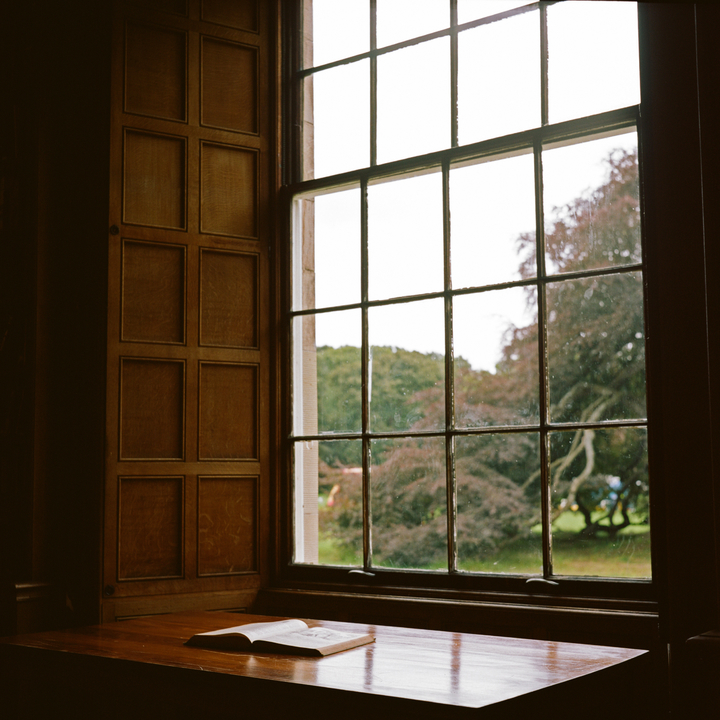Nick Cotman did his undergraduate studies in philosophy and political science at the University of Ottawa. He then completed his Master of Theological Studies at St. Michael’s Faculty of Theology in 2019. It was at this time that he began working in the chaplaincy leader position at his alma matter, Holy Cross Catholic Secondary School in Kingston, ON.
Encountering Opportunity in Restriction

As we have come to expect from most things in 2020, public education in Ontario’s schools looks a little different from most years. In Kingston, secondary schools are following an octomester model, meaning that there is one class each day for 22 straight days. Lunch periods are staggered for each grade in an effort to avoid congestion around the school. Additionally, teachers are livestreaming their lessons to ensure remote learners are getting the needed material. All of these adjustments have required a significant mental and pedagogical reorientation from staff and students. Having only begun my high school chaplaincy career in the fall of 2019, and being out of the school by this past March, these first months back have felt more like the second volume of my first year as I relearn the role.
Being (physically) back in school has affirmed something I had been reflecting on since COVID first began to reshape our daily lives: that a single thing can be both restrictive and freeing. The colleagues and students I have the privilege of spending time with each day are showing me there are unexpected opportunities to be found in the constraints we are currently navigating. I think it is important to note, however, that any “pleasant surprises” we encounter in no way diminish or undermine the unique challenges each of us has faced. Nonetheless, we should acknowledge that by being forced to reconsider the way we approach many things, 2020 has also shed light on the shortcomings of previous practices and provoked new, more effective methods. Being in school has made this especially clear to me.
There are a few experiences I’d like to recount. The first is one which is bound up closely with my position in the school: the absence of school Masses. This has forced a significant shift in focus to other liturgical practices. I have been doing regular class visits to lead lectio divina readings and the Ignatian Daily Examen with students. Although we will be thankful when the day comes that we can celebrate Mass as an entire community, this unplanned hiatus has led me to recognize the richness of these other liturgical approaches. Mass in school was always an appreciated community event, but it was evident that further foundational efforts in spirituality and liturgical understanding would enrich the experience. The event of a school Mass may have become overly familiar, causing a lack of deliberate and reflective participation. J.R.R. Tolkien wrote that we often need “to clean our windows; so that the things seen clearly may be freed from the drab blur or triteness of familiarity.” This break may inadvertently serve as opportunity to form our liturgical sensibilities as a community through other practices, allowing us “to clean our windows,” and more fully appreciate Mass when we can gather once more as an entire community.
Another example that is small but noteworthy is the new inclusion of an end-of-day prayer. Prior to current circumstances, we would recite a simple grace over the PA before lunch. Now, however, with each grade now getting out of class at different times, this was ruled out to avoid further interruptions. In the absence of a lunch hour prayer, we decided to begin doing a prayer at the end of the school day. This small change has been incredibly well received. We join in a meaningful prayer to give a definitive conclusion to the school day and to look forward to the evening ahead. This is a practice we will likely carry forward beyond these unusual circumstances, though we may have been unprompted to explore it without the current conditions.
Without Masses, retreats, or community outreach to coordinate, my priorities within the school have shifted. More than ever, it seems that chats in the staff room and chance encounters with students in the halls are of greater pastoral importance. When there was more room to complete tasks and plan outreach events, I began to let behind-the-scene to-do lists take the front seat. I’m thankful I’ve been required to shift my focus to relationships within the school. When things return to normal, I’ll be sure to maintain this focus.
There are an array of other instances I could talk about, such as our amended graduation ceremony, virtual coffee houses, and the music class using the cafetorium so as to social distance more effectively (allowing halls throughout the school to enjoy their practice). Students seem more open to seek me out to chat (though perhaps they just want out of class since they’re now in the same room all day!) and are displaying impressive consciousness of the well-being of those around them. They are dutiful in mask wearing, have embraced the octomester model, and even surpassed any previous food drives during our Thanksgiving collection.
These are all just small instances of the pleasant surprises I’ve seen over the past months. We have all encountered them in different ways, but I am especially thankful to see them occurring in Catholic education through the lens of chaplaincy. When we learn to embrace unanticipated circumstances, we can open ourselves up to viewing things in new ways and create room for God’s grace in areas we might lack control. In the chaplaincy work ahead, I’ll be sure to continue looking for the pleasant surprises and opportunities for growth that our current restrictions can bring.
Read other InsightOut posts.
